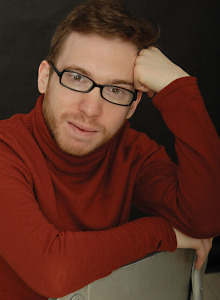
In 1974, from the time Yentl went into rehearsal at the Chelsea Theater Center of Brooklyn in New York, offstage drama plagued the production. An Orthodox congregation ostracized its rabbi for coaching performers in Robert Kalfin’s production. The Jewish Press turned down ads for the “pornographic” play, which includes three nude scenes.
Set in a shtetl, the play is about a young woman who disguises herself as a man in order to enroll in a yeshiva. There she falls for both her male study partner and a woman, creating crises for people whose religion conflicts with their love.
Michael Perlman directs a new production of Yentl at the Cleveland Play House in Ohio, running Jan. 10-Feb. 2. What struck him, he says, is how different the title character is from the women who disguise themselves as men in Shakespeare. “This is a story about someone we would now call transgendered,” Perlman says. “It’s about a person finding her identity.”
In the short story that Leah Napolin adapted into the play, Isaac Bashevis Singer wrote that by wearing men’s clothes, “one deceived not only the other but oneself.” Adds Perlman, “It feels like a fable for adults.”
Scenes shift between a rabbi’s study, a synagogue, a riverside, a yeshiva, a ritual bath, a wedding and more. But in this Yentl, just a few pieces of furniture define each locale. “It’s important not to get distracted by the size or logistics of this play, which is ultimately about the three central characters and their love triangle.”

